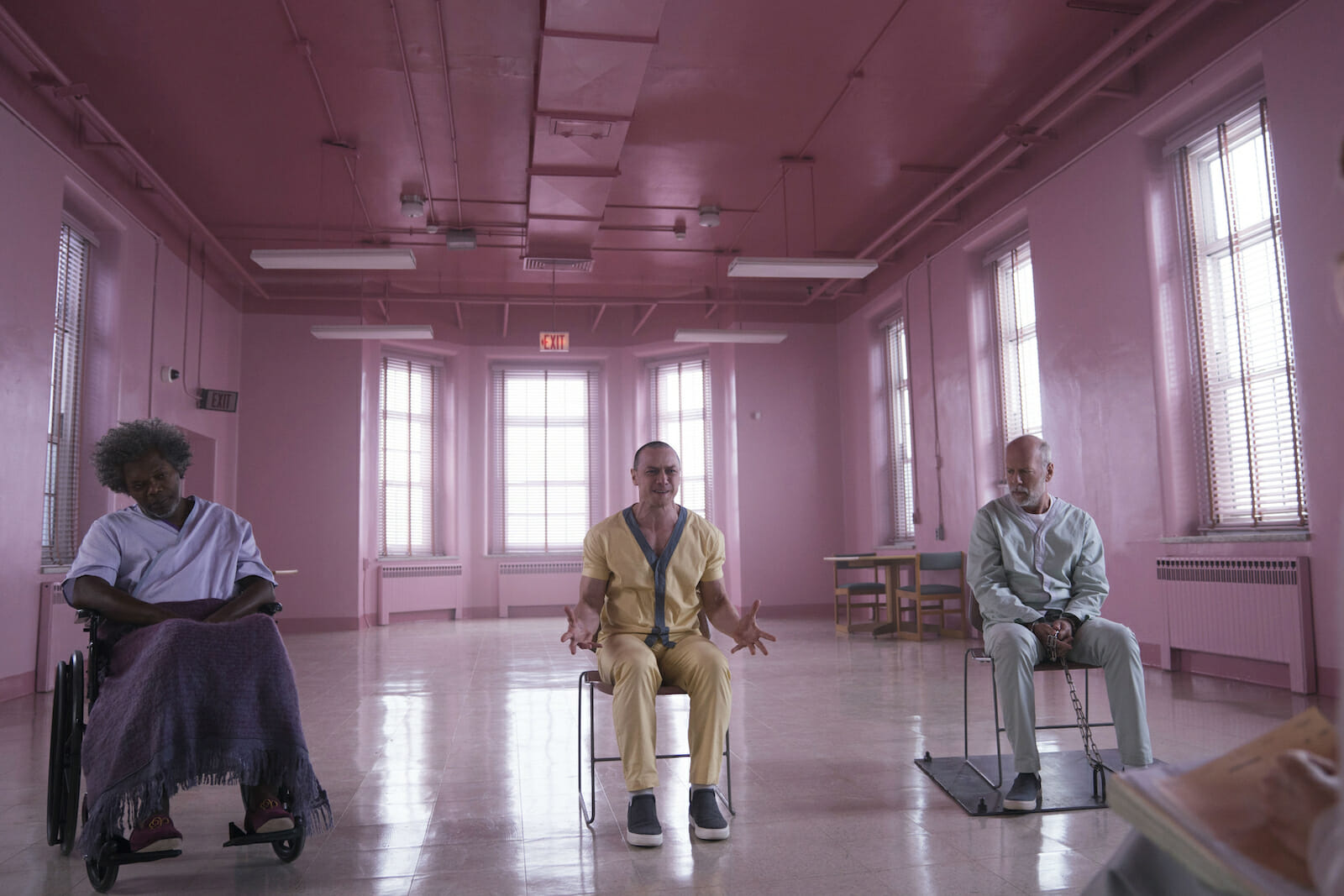
‘Glass’ Review
It’s pretty simple. If you are a fan of Unbreakable (2000) and Split (2016), then you need to see Glass, the finale to M. Night Shyamalan’s trilogy. If neither of the two previous films tickled your fancy, then you’ll likely find nothing of interest here. The biggest fear is that fans of the first two (like me) will be disappointed and frustrated (like me) by the missed opportunity. Rather than real-world superpowers clashing, we get what is mostly a silly letdown.
The set-up is outstanding. David Dunn (Bruce Willis) and his now-grown son Joseph (Spencer Treat Clark, reprising his Unbreakable role) have teamed up for years in tracking down lowlife societal scumbags and teaching them a lesson. Mostly avoiding cameras (more difficult now than when he first realized his power), Dunn now has a nickname, The Overseer, and still dons his green poncho – though it’s now equipped with a headset for communication with Joseph. The Dunns have been tracking Kevin Wendell Crumb (with a Beetlejuice twist), who has kidnapped more teenage girls and is holding them hostage. James McAvoy returns as Kevin, and his 23 other personalities (referred to as The Horde), and early in the movie, we get our first Dunn vs. The Beast battle. Unfortunately, it’s brief and ends in their capture and being locked away in an institution. And this is where the fun comes screeching to a halt.
It’s at the institution where we discover Elijah Wood/Mr. Glass (Samuel L. Jackson) is also being held, and Dr. Elle Staple (Sarah Paulson) is the psychologist specializing in treating those who believe they possess superhuman traits, be they good or evil. This misdirected plot line is our first real frustration, as we have already seen the super strength of Dunn, the massive transformation of The Beast, and the villainous mastermind of Elijah. By definition, there is no suspense when we know the answer. Because of this, the entire treatment segment drags on far too long and features entirely too much of Ms. Paulson, and too little of those we came to see.
Also reprising their previous roles are Anya Taylor-Joy as Casey, the only surviving former captive of Kevin, and Charlayne Woodward as Elijah’s mother. Ms. Woodward is given little to do, and Ms. Taylor-Joy’s strong acting almost saves her from the ludicrous script…a development we intellectually understand, but emotionally refuse to accept. In fact, the script is to blame for most of our frustration here. McAvoy is again tremendous in his ability to convey multiple personalities, and Jackson, once he is no longer catatonic (never a good use of a dynamic actor), relishes his return to evil. There is an interesting use of color for the three main characters: Dunn – green, Kevin – yellow, and Elijah – purple, and the cinematography of Mike Gioulakis (It Follows) contributes some unusual angles and views.
Disney and Universal are to be commended for a rare rival studio collaboration, and M. Night Shyamalan certainly deserves credit for being on the front end (with Unbreakable) of the serious, dark, atmospheric superhero movie perfected by Christopher Nolan’s Dark Knight trilogy, but this film is nothing to be proud of. The film’s twist is easily predictable (and dragged out), and some parts are disappointing while some are an insult to our intelligence…and downright silly (the ending). Still, there is a certain value to closure, even if it’s a letdown.
